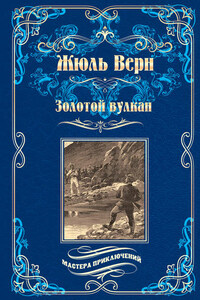On the 2nd of February, 1873, the “Pilgrim”, a schooner, the property of James Weldon[1], a wealthy Californian ship-owner, was ready for the whale-fisheries[2] in the southern seas.
Every season James Weldon sent his whalers both to the Arctic regions beyond Behring Straits[3], and to the Antarctic Ocean below Tasmania and Cape Horn[4]. The “Pilgrim” was onae of the best vessels of its class.
Captain Hull[5], an experienced seaman, was one of the most dexterous harpooners. The crew consisted of five sailors and an apprentice. In New Zealand, from the seamen of every nationality, and of needy emigrants, the captain could engage as many whalemen as he wanted for the season. The “Pilgrim” was on its way back. The time, indeed, for a good haul was past; the repeated and vigorous attacks upon the cetaceans made them very scarce.
The season was exceptionally unfortunate for the “Pilgrim.” At the beginning of January, Captain Hull abandoned his fishing-quarters[6]. His men had doubtful character and showed the signs of insubordination. The “Pilgrim” was directed to the north-west, towards New Zealand. On the east coast of North Island, the whole of the gang was discharged.
The ship’s crew were very dissatisfied. They were angry. Their haul was meagre. They wanted two hundred barrels more. The rascals marred the success of the expedition.
Captain Hull made every effort to engage a fresh gang; but it was too late. He was leaving Auckland, alone with his crew, when he met a request.
James Weldon brought with him his wife, his son Jack, a child of five years of age, and a relative – Cousin Benedict. They wanted to accompany Weldon on his return home to San Francisco; but little Jack was seriously ill. His father’s affairs demanded his immediate return, so he left Jack at Auckland with Mrs. Weldon and Cousin Benedict.
In three months, Mrs. Weldon was anxious to get home as soon as possible. When she heard that her husband’s vessel, the “Pilgrim”, was at Auckland, she begged Captain Hull to take her with her little boy, Cousin Benedict, and Nan, an old negress, on board the “Pilgrim”. Captain Hull gave his consent. Moreover, the captain gave Mrs. Weldon his own cabin. Everything promised well for a prosperous voyage.
Mrs. Weldon herself accompanied her husband in many voyages, and she was not afraid of a seafaring life. She was a brave, high-spirited woman of about thirty years of age, of excellent health, and for her the sea had no terrors. She knew that Captain Hull was an experienced man, in whom her husband had the utmost confidence.
Cousin Benedict accompanied her. He was about fifty. Spare, lanky, with a bony frame, with an enormous cranium, and a profusion of hair, he was one of the amiable and inoffensive savants.
He did not think of his meals until they were before him. He was utterly insensible to heat or cold. They compared him to a tree which produces scant foliage and no fruit.
But Cousin Benedict was not idle. On the contrary, he was an amateur entomologist. Every available hour he spent in the pursuit of his favourite science. This passion of his urged him to accompany Mr. and Mrs. Weldon to New Zealand.
To leave him was sheer cruelty. So when Mrs. Weldon went on board the “Pilgrim,” Cousin Benedict joined her too.
The amateur was very careful about his special box. Amongst his collection of insects were some very remarkable examples of new staphylins, a species of carnivorous coleoptera[7] with eyes above their heads. Of course Cousin Benedict insured his box at a fabulous sum. For him, it was worth far more than all the cargo of oil and whalebone.
Captain Hull met Mrs. Weldon and her party as they stepped on deck.
“Mrs. Weldon,” he said, “you take this passage entirely on your own responsibility.”
“Certainly, Captain Hull,” she answered; “but why do you say it?”
“Simply because I have no orders from Mr. Weldon,” replied the captain. “Madam, the ‘Pilgrim’ cannot afford you the comfort to which you are accustomed.”
Mrs. Weldon smiled. And the “Pilgrim” turned its head towards America.
Three days later strong easterly breezes compelled the schooner to change its course.
















